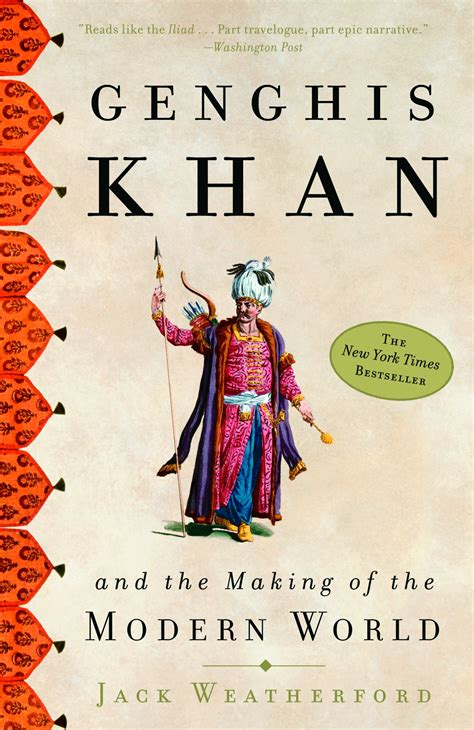Horrific Press, Great Outcomes and Fascinating History: The Mongols
Few figures in history have been more feared than Genghis Khan. While there have been more than a few truly horrific political leaders able to act on global ambitions, Genghis Khan stands out as an exceptional empire builder. During his sixty-one years (1162 – 1227), he conquered created what many consider the largest state ever, covering much of Asia, from China to parts of Europe. Hundreds of millions were affected by him and tens of millions lots their lives. But what do we know of Genghis Khan as a person? Jack Weatherford, an anthropology professor and author, penned an accessible best-selling biography that has remained in print – and popular – for more than two decades. Genghis Khan and the Making of the Modern World reads like a novel and sheds a great deal of light on this extraordinarily fascinating – and understandably polarizing – figure.
Weatherford’s aim is to explain, to contextualize, and to appreciate the impact of Khan and his empire. Questions of morality are view through an anthropological lens. Weatherford’s goal is not to judge, but to document and explicate. With that as a grounding, the book provides a extremely interesting history of a compelling man. Khan, through ruthless intelligence, was able to build power within Mongolian culture and then across a continent. He was rigorously meritocratic, restless to a fault, and innovated in how he treated and organized peoples. From military structure to rights for women to how conquered lands were treated, Khan established a kind of rough “fairness” for those under his control. His approach benefited him, naturally, and distinguished the Mongolian army and empire from all others. He sought great power without any sustained interest in cultural conversion. If one agreed to submit to the power of Genghis Khan and his taxes and wants, life could be good. Resist his empire and death was more than likely.
Without any real practice of agriculture or the making of goods, the Mongol economy depended upon taxes and plunder. Accordingly, outcomes mattered more than anything else to sustain Mongolian rule. What mattered and did not to Khan and his people is very interesting. The Mongols greatly valued Mongol life. There were no sacrifices of troops. They had little interest in torture or excessive cruelty, in contrast to many leaders of the period. The Mongols had no sense of honor and were not keen on proselytizing. The unusual admixture of traits and preferences gave the Mongols great advantages in their drive to expand. They used terror and general fear to achieve their aims. Genghis Khan, who appreciated the value of scribes, laws and structure, took advantage of all and more. They welcomed the terrible press, for it made sieges all the easier.
Weatherford’s book moves quickly. He knows how to dwell on an anecdote and when to pull back to explain broader themes. The big picture does not suffer, for he shows how the Mongolian empire had an incredible impact on world trade and commerce. Were it fiction, it would stand on its own as an incredible story. All in all, Genghis Khan is a fascinating window into an ancient and little understood world.
David Potash
